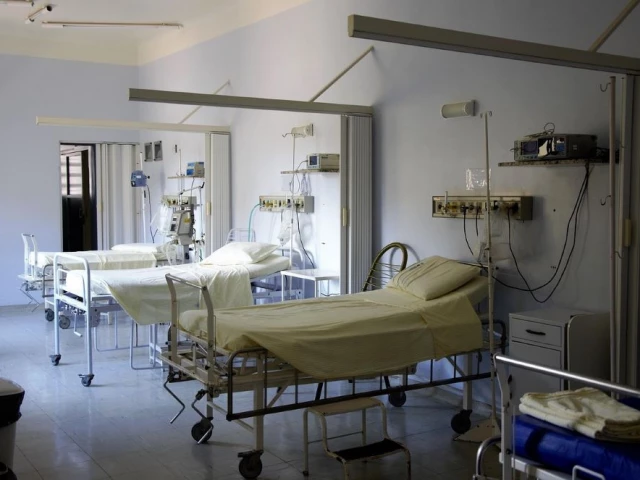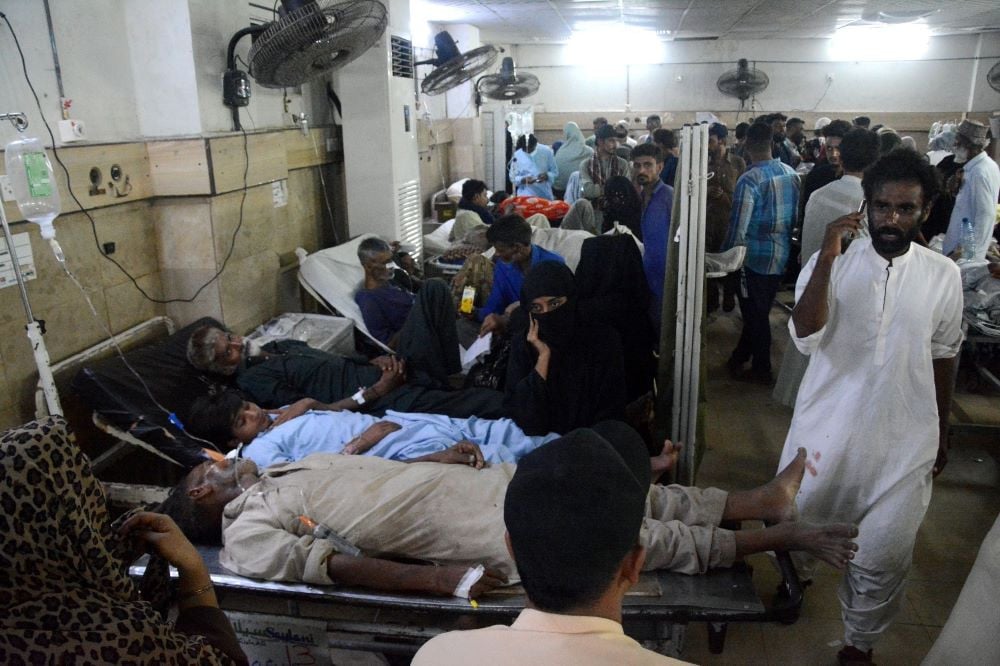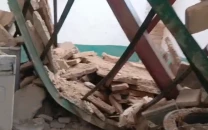Public hospitals face bed, staff crisis in Karachi
Only 6,500 beds are available across nine government hospitals for a population of 30 million people

Due to its advanced treatment facilities, Karachi is known to attract patients from across Sindh and Balochistan. However, with only 6,500 beds, 250 ventilators and a shortage of doctors and medical staff, major hospitals in the city are ill-equipped to handle even the local influx of patients.
Sadia Khatun, who came to the Jinnah Hospital for her husband's gallbladder surgery, was told by the staff that no bed was available. “I struggled tirelessly to secure a bed for my husband but was unsuccessful. For two weeks, I went to the Jinnah Hospital for my husband's admission but could not find a bed. Poor patients have to wait endlessly for admission at government hospitals, due to which they have to face severe difficulties in getting treatment,” regretted Sadia, who eventually had to take a loan for her husband’s treatment at a private hospital.
According to the Former Director Health Karachi Dr Ikram Sultan the unavailability of treatment facilities in the district hospitals of interior Sindh resulted in a huge patient influx at government hospitals. “Jinnah Hospital receives a large number of patients not only from Karachi but also from other cities.
Furthermore, the number of beds has not increased in decades, while there is a severe shortage of staff in these hospitals. The government should ensure the appointment of specialists of various diseases at district hospitals and provide secondary care services at these hospitals. Only then will the pressure of patients at the Jinnah and Civil Hospital be reduced,” implored Dr Sultan.
Sources of The Express Tribune have revealed that 60 per cent of the beds at Karachi's district hospitals are occupied. Although these hospitals provide primary health care facilities, they face a severe shortage of paramedical and nursing staff, with specialists like anesthesiologists, nephrologists, and pulmonologists unavailable. This significantly increases the influx of patients at the major tertiary care centers in the provincial capital.

Multiple patients on a bed at Dr Ruth Pfau Civil Hospital's Emergency Ward. Photo: Express
For instance, the Civil Hospital receives 2,000 patients daily in the accident department while 8,000 patients visit the OPD for examination. The hospital admits 200 patients every day. In response to a question, Dr Khalid Bukhari, head of the hospital, reported an unprecedented increase in the number of patients coming from Sindh and Balochistan. “Because of this, patients in Karachi sometimes have to wait one to two months before receiving treatment,” informed Dr Bukhari.
Similarly, the Jinnah Hospital’s spokesperson, Jahangir Durrani, informed that most of the ICU units of the hospital were inactive due to 50 per cent of the staff not being available. “ICU technicians are needed to run the equipment. Due to the acute shortage of staff at the ICU units, patients are admitted on only five out of 15 beds in the chest ICU. Similarly, there are 21 beds in the surgical ICU, but patients are admitted to only eight,” said Durrani.
On a similar note, Executive Director at the Shaheed Benazir Bhutto Accident and Emergency Trauma Center, Dr Sabir Memon, revealed that there was a total of 500 beds in the trauma center, out of which 60 were non-functional. Likewise, the Sindh Government Liaquatabad Hospital has only 200 beds, four operation theatres and 16 ventilators, with 75 per cent of the beds occupied by patients.
Not a single CT scan machine is available at the facility. Similar bed and medical staff shortages have been reported at the Lyari General Hospital, Sindh Government Qatar Hospital, Sindh Government Saudabad Hospital, Sindh Government Korangi Hospital and Sindh Government New Karachi Hospital.
To make matters worse, Karachi's major government hospitals including the Civil Hospital, Sindh Institute of Urology and Transplantation (SIUT), Trauma Centre, Services Hospital and Police Surgeon's Office are located in a densely populated area of the MA Jinnah Road, where the movement of ambulances is often obstructed by heavy traffic.




















COMMENTS
Comments are moderated and generally will be posted if they are on-topic and not abusive.
For more information, please see our Comments FAQ